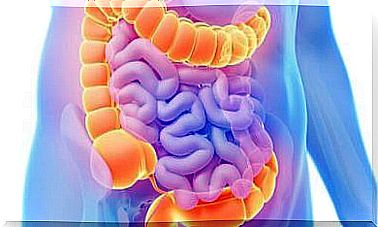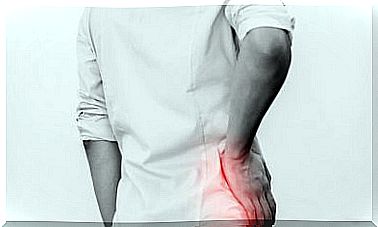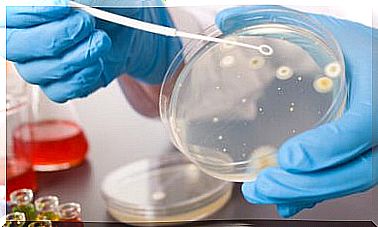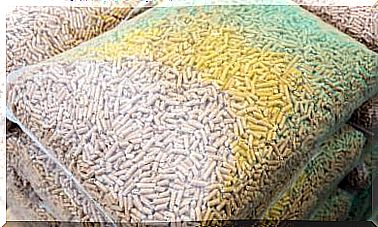8 Household Products That Affect The Thyroid
The thyroid is a small butterfly-shaped gland located just in the lower part of the neck. This fulfills a very important function as it is responsible for the metabolic processes of the body. The use of certain household products could influence the appearance of thyroid problems due to the amount of chemicals and toxins that make them up.
Therefore, avoiding or reducing its use could be a way to reduce the risks of suffering from these types of problems.
Products that could cause thyroid
When there are disorders in the thyroid gland, many organs of the body can be affected. As a consequence, the quality of life can be reduced due to the appearance of different disorders and diseases.
Exposure to certain toxins is one of the main causes of increased thyroid gland problems.
Following a healthy eating plan can help reduce the impact of toxins on the body. However, there are other habits and products that are ignored that could also affect how it works.
Minimizing toxicity is important to prevent this alteration, not forgetting to consult your GP or chiropractor if you think you may have thyroid symptoms.
Pesticides

Several studies have been able to determine that people who are in contact with certain pesticides in one way or another have a higher risk of thyroid problems.
One such study was conducted with women married to men who use pesticides in their daily work in Iowa and North Carolina (United States). It was found that about 20% of them suffered from a thyroid-related problem. Thus, it was concluded that people exposed to these pesticides had a higher risk of having thyroid problems.
Some of the products analyzed were antifungals or chlordane. These were shown to increase the risk of thyroid problems. However, the exact cause is still unknown.
However, a recent study by the University of Almería did corroborate the correlation between the use of pesticides and the development of thyroid disease.
Flame retardants
Flame retardants or polybrominated diphenyl ethers (PBDEs) can cause disturbances in the functioning of the thyroid gland.
These types of products are found on television and computer screens. We can also find them in the foam used in furniture and carpet padding.
To make matters worse, PBDEs are related to behavioral and developmental problems. This is because the thyroid gland is related to the nervous system. This is how this article from the Spanish Pediatric Act on environmental neurotoxic agents would verify it.
It is best to replace the products that contain them with others without them.
Plastic
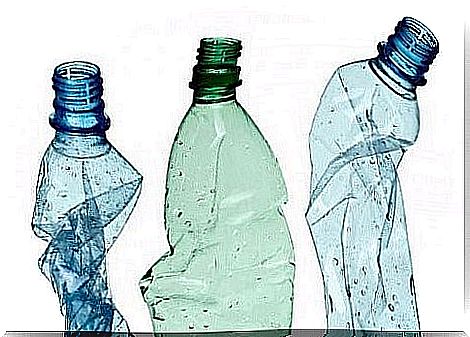
In addition to having a negative impact on the body, plastics can be dangerous for the functioning of the body.
One of the health concerns is a chemical that leaks out of plastic bottles. This is known as antimony.
Scientists from the University of Copenhagen found antimony in fruit drinks and juices in plastic bottles. In addition, these were found at levels 2.5 times higher than what is considered safe.
Certain phthalates in some plastics have also been shown to affect thyroid function.
Non-stick
Some release agents are made of perfluorooctanoic acid (PFOA). This chemical is used in the manufacture of Teflon, food wrap, and other products commonly used in the home.
According to a study by British specialists, this chemical can affect the thyroid even if it is exposed to moderate levels. Therefore, it is better to avoid its use.
Toothpastes with triclosan
Some popular toothpastes contain an ingredient known as triclosan. This could affect the functioning of the thyroid, testosterone and estrogens, in addition to preventing some antibiotics from working.
This is because it interferes with the hormones produced by the thyroid. In addition, it could alter the normal development of the reproductive system and metabolism.
However, tests continue to show whether there really would be a correlation between the thyroid and this microbial.
If you require more information about recent studies, we collect this article from the Network of Scientific Journals of Latin America, the Caribbean, Spain and Portugal.
Antibacterial products

There are antibacterial soaps and lotions that also contain triclosan. This is corroborated by this study carried out by the Endocrine Society.
Triclosan acts as an antibiotic to control bacteria that grow on the feet, hands, teeth, and other areas of the body. However, it can be harmful to other body functions such as the thyroid gland.
Heavy metals
Many household chemicals have a certain amount of heavy metals such as mercury, lead, and aluminum. These, by firing against antibodies, can lead to autoimmune thyroid disorders, such as Hashimoto and Graves-Basedow diseases.
Scientifically, it is demonstrated by this article written in the Bioagro Magazine, where it exposes the potential risk that heavy metals can present to our health.
Soy
Soy contains phytoestrogens in its proteins, which can inhibit thyroid peroxidase. A recent study by the University of the Balearic Islands demonstrates this belief.
What this product does is disrupt the normal function of the thyroid. This is because it blocks the body’s ability to use iodine. This is the process by which thyroid hormones are produced.
Still, there is no conclusive evidence that soy is 100% harmful to adults. It is best to reduce its consumption and consult our doctor so that he can recommend the most appropriate dose in case of thyroid problems.
Another disadvantage of soy is that today much of it is genetically modified (GMO). This could also be influencing its negative health impact. Ideally, in this situation, you would choose to look for natural products.


